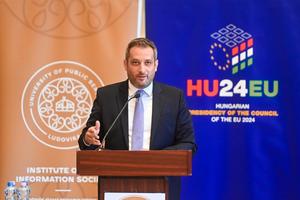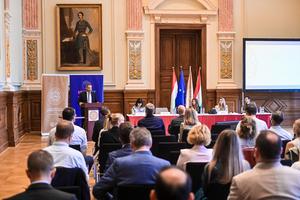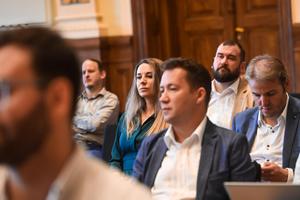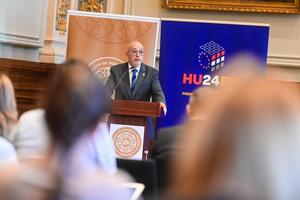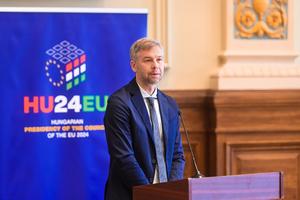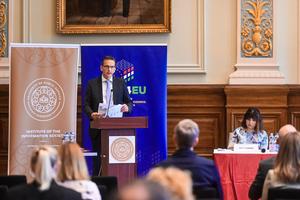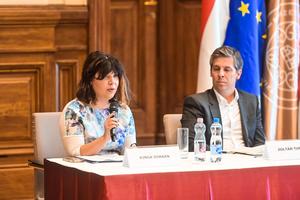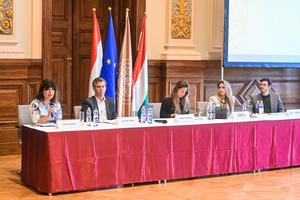Experts from Hungary and Europe discussed the impact of artificial intelligence (AI) on society and fundamental rights, as well as the possible legal regulation of the technology at the Ludovika University of Public Service.
The Institute of the Information Society (IIS) of the Ludovika University of Public Service (LUPS) organised a conference entitled Fundamental rights in the age of AI on 26 September in the Szechenyi Hall of the Ludovika Main Building as event of the Hungarian Presidency of the Council of the European Union 2024.
"Today's theme of our conference is the intersection of EU legislative activity and academic research," said Bernát Török, Director of the Eötvös József Research Centre and Head of the Institute of the Information Society, in his opening remarks. – "Both aim to use the achievements of the constantly evolving digital world for the benefit of society," he said.
"The protection of personal data is still an area of paramount importance, and the regulation of AI is based on the principles of the GDPR, so its provisions must be followed" –emphasized Attila Péterfalvi, President of the National Authority for Data Protection and Freedom of Information (NAIH). "Reliability is an old European benchmark, and we have been manufacturing industrial products based on it for decades."
"The AI Act has also laid down the rules for trusted AI," said Kilian Gross, Head of Unit at the European Commission's Communications Networks, Content and Technology (CNECT), at the event. He was followed by David Reichel, Project Manager of the European Union Agency for Fundamental Rights, who stressed that efficiency as an objective should not be enough to push fundamental rights into the background.
In the panel discussion "AI and Fundamental Rights" moderated by Kinga Sorbán, researcher at IIS and Vice-Chair of the Telecommunications and Information Society Working Party of the Council of the EU, Zoltán Turbék, Deputy Permanent Representative of the Permanent Mission of Hungary to the United Nations; Nikolett Aszódi, Policy and Advocacy Manager at AlgorithmWatch; Angeliki Dedopoulou, EU Policy Manager for AI and Fintech at Meta; and Julien Chasserieau, Associate Director for AI & Data Policy, DigitalEurope exchanged views.
The full conference agenda is available here.
Text: Tibor Sarnyai
Photo: Szilágyi Dénes
